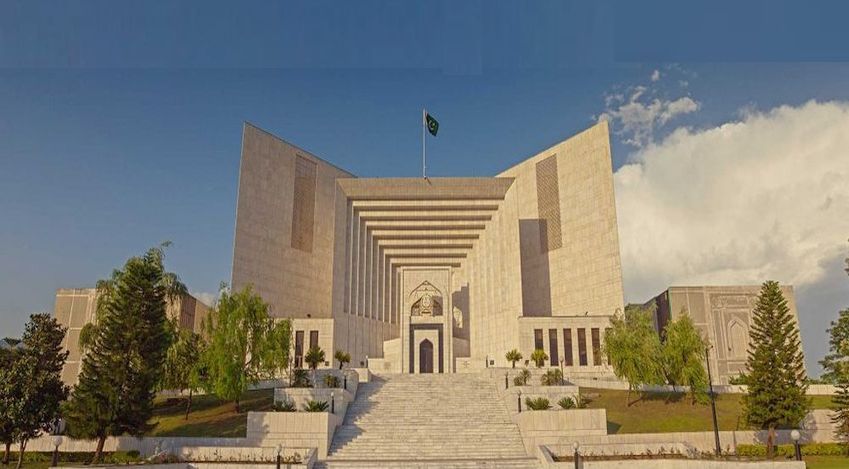The Supreme Court will not hesitate to revisit its own Decisions if it is proven that there was an error in the Application or Interpretation of the Law --- Supreme Court of Pakistan
Islamabad 08-10-2024: The Supreme Court of Pakistan, in a significant decision, unanimously allowed the Civil Review Petition No. 197 of 2022, setting aside the majority order and detailed judgment dated May 17, 2022, in Constitution Petition No. 2 of 2022. The bench, led by Chief Justice Qazi Faez Isa, along with Mr. Justice Amin-ud-Din Khan, Mr. Justice Jamal Khan Mandokhail, Mr. Justice Naeem Akhtar Afghan, and Mr. Justice Mazhar Alam Khan Miankhel, reviewed the legality and constitutional validity of the prior decision, ultimately concluding that the original judgment was flawed.
The petitioner, Supreme Court Bar Association of Pakistan, through its President, challenged the earlier judgment on multiple grounds, asserting that significant legal and factual errors had been made. The Federation of Pakistan, represented through the Ministry of Interior, was the primary respondent in the matter.
The Supreme Court, after detailed deliberations and reviewing the submissions of all parties, determined that the majority decision rendered in May 2022 did not adhere to established legal principles and was inconsistent with prior judicial precedent. The Chief Justice highlighted that the Court’s power of judicial review is not merely a technical tool but a substantial mechanism to rectify errors and uphold the integrity of the judiciary.
The Court acknowledged the valuable assistance provided by the learned counsel on both sides, particularly noting the contributions of Syed Ali Zafar, who, despite initially stating his client’s intention to withdraw, served as amicus curiae (friend of the Court) to aid in the resolution of the complex legal issues.
This judgment reaffirms the Supreme Court’s authority to review its own decisions when it is shown that such judgments were rendered in contravention of legal or constitutional mandates. The Court underscored the principles of natural justice, the right to a fair hearing, and the duty of the judiciary to ensure consistency and adherence to precedent.
This ruling is expected to have a far-reaching impact on the practice of judicial review in Pakistan. It sets a precedent that the Supreme Court will not hesitate to revisit its own decisions if it is proven that there was an error in the application or interpretation of the law. Legal analysts suggest that this judgment will bolster confidence in the judiciary’s commitment to justice and its willingness to self-correct.
The initial judgment, which has now been set aside, was delivered in a constitutional petition challenging actions taken by the Federation. The petition involved complex questions regarding the powers of the executive and the judiciary’s role in scrutinizing such powers. The Supreme Court’s decision to allow the review petition effectively nullifies the conclusions reached in the previous judgment, restoring the legal status quo prior to the May 2022 order.
The Supreme Court’s decision to allow the review petition is a testament to its role as a guardian of the Constitution and the rule of law. The judgment, which will be followed by a detailed order outlining the reasons for setting aside the earlier decision, is expected to provide further clarity on the scope and limitations of judicial review in Pakistan.
Powered by Froala Editor








